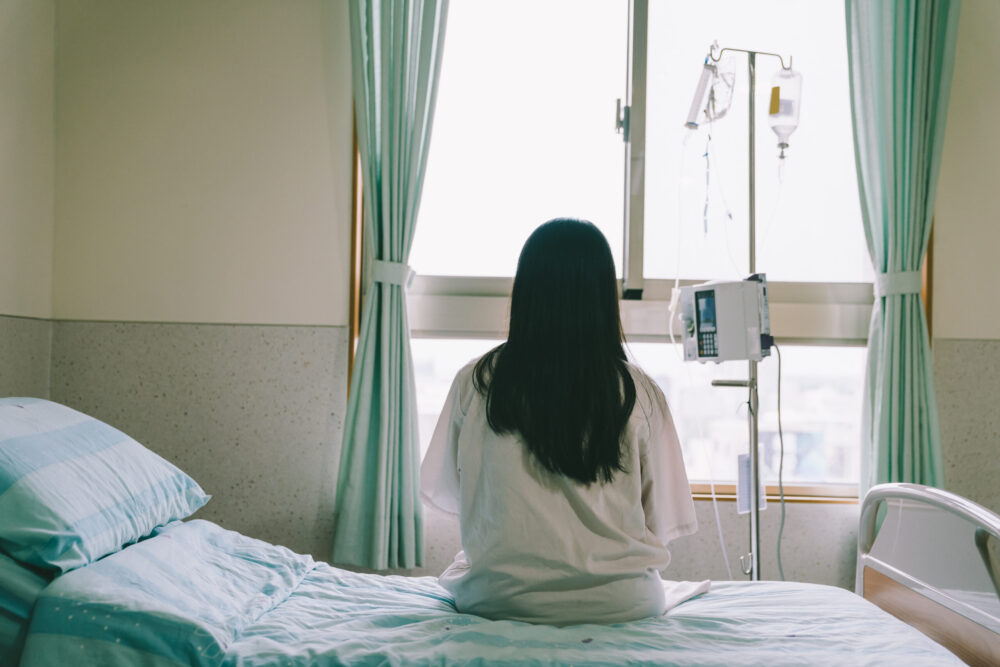The supreme court ruling to overturn Roe vs Wade in the US has sparked enormous global discussion about women’s bodily autonomy and what should be an indisputable right to decided what happens with that body.
Abortion is a common and essential health service roughly 88,000 abortions occur in Australia every year; even with a majority of voters self-identifying as “pro-choice” it took until 2021 for abortion to be legal in all states and territories and is still difficult to access for a majority of women.
There is valid concern that if the Roe v Wade legislation is overturned it will embolden the religious right in western culture who want women’s bodies controlled.
In 2018 I was pregnant, my doctor said to me and my husband: “Your HCG levels are rising but not enough, we aren’t sure if the baby will be OK. I want to prepare you that there might be some tough choices coming up.”
A bit of backstory. My mental health at that time was fragile; a survivor of domestic abuse, I lost a baby in 2013 the recovery was slow. Then in 2016, I gave birth to a beautiful daughter. My pregnancy with her was not easy, it never is for women after a loss. After she was born, she had health complications, this led to a crushing post-natal depression; a fog that was only starting to lift.
So, in 2018 when I found myself pregnant once again, the pressure of knowing this new pregnancy wasn’t going well was overwhelming. I was unable to work or fully participate in family life; a zombie trying to stay hopeful. My traumatised brain would not let me engage with what was happening with my body to protect itself.
I lost this baby – it wasn’t a choice. It was a necessity.
It seems unbelievable that in 2022 this discussion is taking place. The standard argument on the pro-life side is that children can be adopted or fostered. This is an inherently flawed discussion as it is not a pregnant person’s responsibility or moral obligation to fulfil someone else’s dream of having children. Currently in the United States there are roughly 440,000 children in the foster care – this system is complex to navigate. Research shows it can be an extremely damaging service that can lead to longer term complications in mental health with 25% percent of former foster care children reporting CPTSD in later life. In a country that openly rejects universal health care, with specialised mental health treatments unattainable to those who need them, how are people supposed to change their situation?
Betsy who recently adopted her sons from foster care said this
“Leave adoption out of your argument. My children’s existence, their trauma is not your shining example of ‘Adoption vs Abortion.’ There is not enough funding for social programs/services. Funding for alcohol and drug treatment, mental health care and childcare as it is- start there pro-lifers”
The Australian system is no better. There are horrifying statistics and stories of abuse from within the foster care system. Under resourced and underfunded, the current system fails both vulnerable children and parents. Pro-life must be about more than the pregnancy and birth; it is about the right to food, shelter, healthcare, education and most importantly love.
There is a worrying trend in western society to apply a religious lens to public policy – we’ve seen examples of this with the current NSW Premier Dominic Perrottet voting against the decriminalisation of abortion, announcing in 2019 he felt those who supported the bill would be on the “wrong side of history”.
To be clear, all global research indicates making abortion illegal and inaccessible, does not stop abortion.
It only stops safe abortion leading to more fatal consequences for women. Since the addition of mifepristone/misoprostol to the PBS, there has been a 5% decline of the surgical abortion rate of per year in Australia reducing the risk to Australian women’s overall health. When religious beliefs direct public policy decisions that impact more than 51% of the constituents it is no longer a democracy, we become a theocracy.
Women who have their reproductive rights legislated risk being enslaved by the state – public policy dictating what their bodies are to be used for. In 1973 Australia abolished military conscription by law; this is the only similar circumstance that can be compared for men. In 1985 Margaret Atwood wrote the dystopian novel the “Handmaid’s Tale” asked the question: If women are fulfilling a ‘need of the state,’ will the state be paying for all the pregnancy costs, including the cost of raising a child? The state of social services in Australia would assure us this is not case.
My experience was a personal choice; I can never make that choice for another person. No one can, and nor should they want to. Pro-choice/ Pro-life. I’m actually Pro Woman.
- Please note: Feature image is a stock photo
Katherine Berney is the Director of the National Women's Safety Alliance. She's also a PhD student in sociology at University of Canberra.





